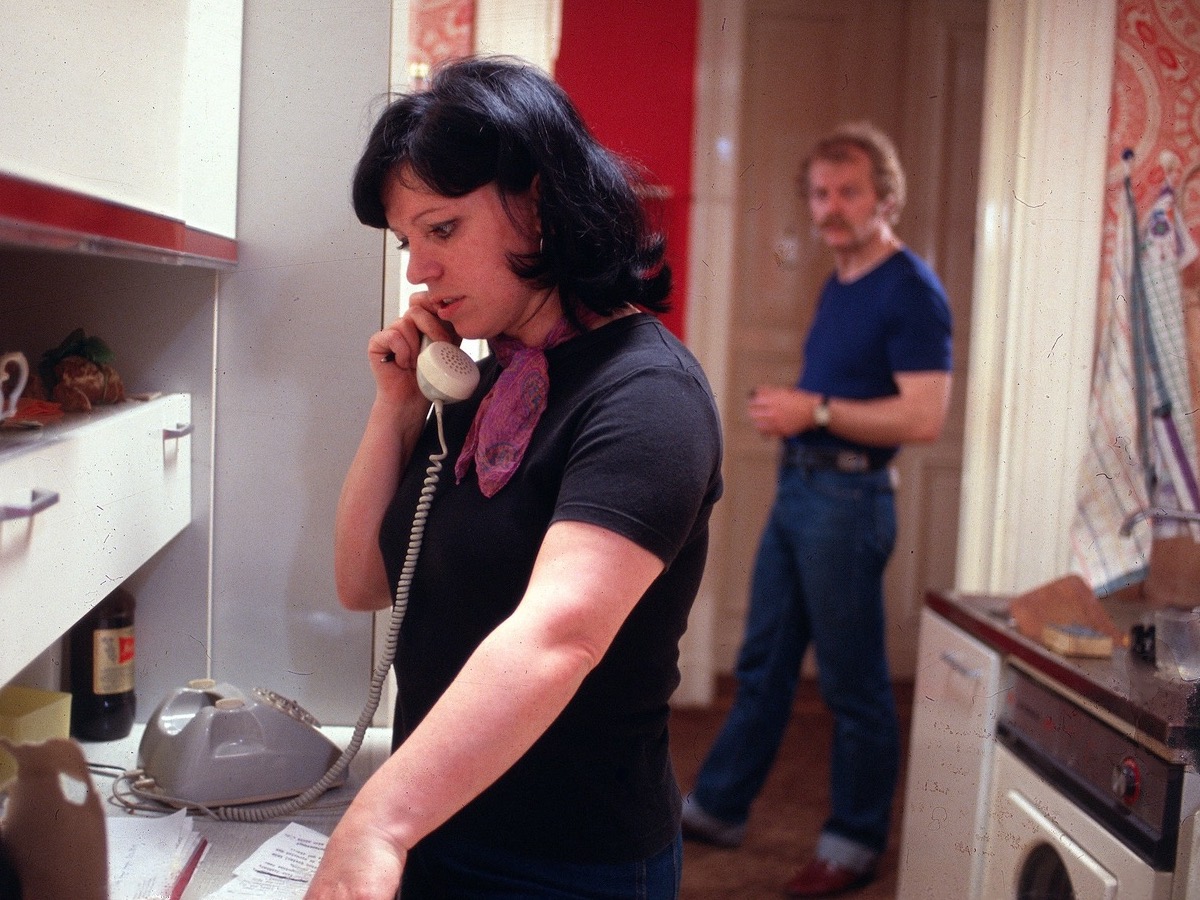
Cristina Perincioli collaborated with women from the first women’s shelter in Germany to stage and examine their experiences escaping violence in their relationships. Alternating between restaged events and discussion between the women, Perincioli gives space for the processing of trauma through dialogue, making visible the often hidden realities of domestic violence. (Courtisane)
EN
“I have constructed narratives to awaken the viewer’s emotions, feelings of anger and joy. These emotions have a power that can be tapped and directed so that people become actively involved in changing themselves or their world. My films’ upbeat endings represent the collective wish of those involved to show that things can work out. It’s not to give directions for a mass movement nor establish models but rather to create an atmosphere of hope and courage.”
Cristina Perincioli1
“In The Political Aesthetics of the Feminist Documentary Film, Julia Lesage finds the politicized description of domestic space emblematic of the feminist documentaries of the seventies. Lesage shows, how a close and intimate collaboration between woman filmmaker and woman subject has led to a new representation of women in film. Such film images are necessary for women to see and relate to, to find power and possibility in, as they strive to move out of the private, domestic sphere and take up a place in the public world. Through her close collaboration with the subjects of her film, Christina Perincioli has created a film which is vibrant in its presentation of new images and possibilities for women.”
Gretchen Elsner-Sommer2
“For me film primarily serves as a means to stimulate certain things in society and in people. Therefore, I haven't made films so much to express my personal problems or to experiment with formal problems. Rather, I do so to express things that are important politically — to use a cliché. Formally I try to make my films accessible, which does not imply a bad style or careless work, as is so often the case with TV. In terms of film practice, I take certain political themes and attempt to make films about them with public subsidies. Often it doesn't work, because my themes clash with generally held social standards and public powers.”
Cristina Perincioli3
Front Image: Courtesy of Deutsche Kinemathek
- 1Cristina Perincioli, cited in Marc Silberman, “Women’s Movement art,” Jump Cut 29 (February 1984): 52-53.
- 2Gretchen Elsner-Sommer, “The Power of Men Is the Patience of Women. ‘Fight first … before
making beautiful art’,” Jump Cut 29 (February 1984): 51. - 3Cristina Perincioli, cited in Marc Silberman, “Conversing together finally,” Jump Cut 27 (July 1982): 47-49.

